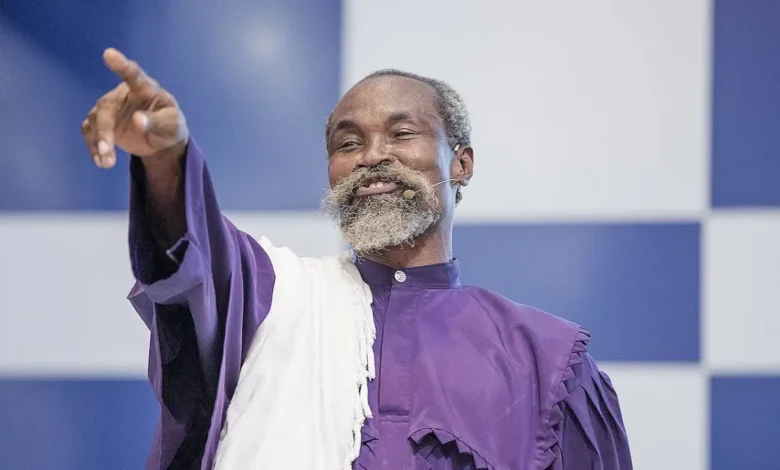A/R: Pastor remanded for publishing falsehood about Adom Kyei-Duah

The Asante Akropong Circuit Court in the Atwima Nwabiagya North District has remanded a 48-year-old pastor, Emmanuel Boachie, for allegedly publishing false and defamatory statements about Prophet Stephen Adom Kyei-Duah, founder of the Believers Worship Centre – Philadelphia in Kumasi Kenyasi.
Boachie, who serves as pastor of Souls Pasture Church and principal of Awesome Bible College in Achiase, pleaded not guilty to charges of false publication, offensive conduct, and breach of peace.
The court, presided over by Mrs Gloria Mensah Bonsu, has adjourned the case to April 30, 2025, for further proceedings.
Case details
Ecuadorian footballer Jackson Rodriguez’s wife and son kidnapped during violent home raid in Guayaquil. He hid the under bed as…
At 58, Japanese football legend Kazuyoshi Miura is still playing professionally in his 40th season with fourth-division side Suzuka. This is his intriguing story…
According to Assistant Superintendent of Police (ASP) Albert Asagre, the complainant, Prophet Adom Kyei-Duah, reported the matter after Boachie posted a video on WhatsApp, TikTok, and Facebook on April 13, 2025. In the video, Boachie allegedly described the complainant as:
The viral social media posts prompted Prophet Kyei-Duah to file a formal complaint with the Kumasi Tafo Police, leading to Boachie’s arrest.
During preliminary investigations, the accused admitted to making the publications but pleaded not guilty in court. Police are continuing their probe as the case proceeds.
The court’s decision underscores the legal consequences of false accusations and inflammatory statements, particularly those that risk public disorder.
Next Hearing: April 30, 2025.
What does the law say about false publication?
Ghana’s legal system strictly prohibits false publications through multiple laws, including the Criminal Offences Act (1960), Electronic Communications Act (2008), and Cyber Security Act (2020).
These laws criminalise the dissemination of false information that could harm reputations or public order, with penalties ranging from fines to 5 years’ imprisonment.
For a successful prosecution, authorities must prove the statement was false, published to others, and potentially harmful.
While Ghana’s constitution protects free speech, this right is balanced against the need to prevent misinformation, especially on digital platforms where cases are increasingly prosecuted.
Defences include proving the statement’s truthfulness or demonstrating it was a fair comment on public interest matters.
The current case against the pastor exemplifies how these laws are applied to social media content deemed defamatory or likely to breach public peace.







